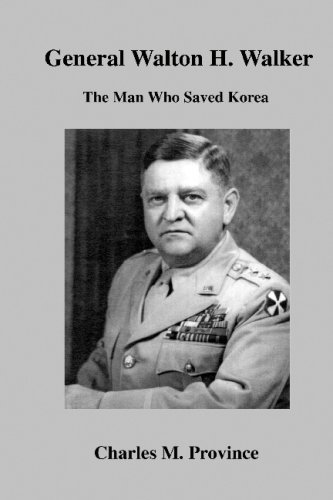
Striking Back
by William T. Bowers
"Combat in Korea, March-April 1951"
Popularity
3.24 / 5
* A book's popularity is determined by how it compares to all other books on this website.
Where to buy?
Buy from Amazon* If you buy this book through the link above, we may receive a small commission at no extra cost to you.
Striking Back by William T. Bowers
Details
War:
Korean War
Perspective:
Commanders
Military Unit:
US Army
True Story:
Yes
Biography:
No
Region:
Asia
Page Count:
504
Published Date:
2009
ISBN13:
9780813125640
Description
Brief Summary
Striking Back: Combat in Korea, March-April 1951 by William T. Bowers is the second installment in a detailed three-volume series concerning the Korean War. This book delves into the pivotal period during late winter and early spring of 1951, focusing on a strategic transition from defensive to offensive postures by United Nations forces. The narrative captures the fierce and influential battles that took place during this time, playing a significant role in shaping the course of the war. Bowers uses a wealth of sources, including eyewitness accounts, official records, and combat reports, providing readers with an in-depth and comprehensive understanding of these critical campaigns.
Main Themes and Topics
One of the main themes of Striking Back is the shift in military strategy, marked by a transition from defensive maneuvers to aggressive offensives. This strategic change is central to understanding the dynamics of the Korean War during this period. Bowers outlines the significance of this shift, emphasizing its impact on the subsequent military campaigns and the broader context of the war. The book also explores the brutal nature of the combats, shedding light on the human experiences and tactical challenges faced by troops on the ground.
Another critical topic is the collaboration and command dynamics within the United Nations forces, as different nations worked together under challenging conditions to achieve common objectives. Bowers highlights these interactions, providing insights into the complexities of international military cooperation during wartime.
Writing Style and Tone
William T. Bowers employs a meticulous and scholarly writing style, utilizing a broad range of sources to build a compelling narrative. His attention to detail is evident in the well-documented battle descriptions, drawing on firsthand accounts and historical records to provide readers with a vivid understanding of the events. The tone remains authoritative yet accessible, making it a valuable resource for both military historians and general readers interested in the Korean War. Bowers' ability to weave personal stories with broader strategic analyses allows for an engaging and enlightening read.
Criticism
While Striking Back is widely praised for its thorough research and detailed narratives, some readers might find the extensive military terminology and dense historical details challenging, especially for those unfamiliar with military history. The focus on military strategies and operations might also overshadow personal stories of soldiers, potentially limiting the emotional engagement for certain readers. Despite this, Bowers' commitment to historical accuracy and comprehensive analysis remains commendable.







